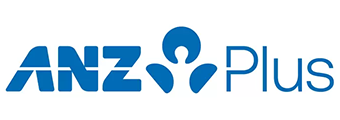
In the same way that a personal term deposit works, a business term deposit lets you park funds for a fixed term to earn fixed returns. This savings vehicle offers a secure way to grow your surplus cash or money your business doesn't need in the short term.
What is a business term deposit?
A business term deposit is a fixed-term investment product offered by banks and credit unions to business entities, such as sole traders, companies, trusts, and partnerships. These are similar to personal term deposits but tailored to meet the financial and compliance needs of businesses.
An eligible business can deposit a fixed amount of money with a financial institution for a specified period or term (typically ranging from one month to five years) at a fixed interest rate. The funds generally cannot be accessed until the term ends without incurring penalties.
Key features of business term deposits
|
Term length |
1 month - 5 years |
|
Interest rate |
Fixed term, varies depending on the term length and deposit amount |
|
Deposit amount |
$5,000 - $25,000+ depending on the provider |
|
Eligibility |
Must be a registered Australian business with an ABN or ACN |
|
Interest payments |
Monthly, quarterly, annually, or at maturity |
|
Early redemption |
Usually allowed with penalties (e.g. interest reduction) |
|
Risk and protection |
Low risk. Covered by the Financial Claims Scheme up to $250,000 per account. |
How does a business term deposit work
A business term deposit is straightforward to set up. You can either be a new or an existing customer of the bank providing the product to open an account. However, some banks may require you to have a linked business transaction account within their institution.
1. Choose your term - Decide how long you want to lock away your funds. Terms typically range from 1 month to 5 years.
2. Deposit a fixed amount - Business term deposits typically require a minimum amount, usually $5,000, depending on the bank. Once lodged, this amount stays in the account for the full term.
3. Lock in the interest rate - The rate you agree to at the start is fixed for the entire term. This means your returns won't change even if market interest rates fluctuate during your investment period.
4. Pick an interest payment schedule - Banks usually allow term deposit customers to choose how their interest earnings are paid.
-
At maturity/end of term often yields the highest overall return
-
Monthly, quarterly, or annually support ongoing cash flow
See Also: InfoChoice Term Deposit Calculator
5. Early redemption - If you need access to your money before the term ends, you'll usually face penalties, typically a reduced interest rate. Some banks may impose forfeiture of some accrued interest or a break fee. Providers may also require notice periods (e.g. 31 days) before releasing funds.
Bank Term Deposit Interest Rate Interest Frequency Term Automatic Rollover Maturity Alert Early Withdrawal Available Minimum Deposit Maximum Deposit Notice Period to Withdraw Account Keeping Fee Online Application Joint Application Tags Features Link Compare Promoted Product Disclosure
Disclosure
Promoted
Disclosure
Who can open a business term deposit in Australia?
Business term deposits in Australia are available to a range of legal entities, such as private companies, trusts (including SMSFs), and sole traders.
Some non-profit or not-for-profit organisations may also be eligible to open a business term deposit, depending on the provider.
Common requirements across providers
-
Australian Business Number (ABN) or Australian Company Number (ACN), trust deed (if applicable), incorporation documents, or other entity documentation
-
Minimum deposit amount
-
Australian residency for signatories
-
Linked business transaction account
Pros of business term deposits
Guaranteed returns
Business term deposits are a low-risk investment vehicle as interest earnings are guaranteed. And because the interest rate is fixed for the entire term, you know exactly how much you'll earn regardless of market interest rate movements during the deposit period.
Capital security
Funds up to $250,000 per account with an Australian authorised deposit-taking institution (ADI) are covered by the government's Financial Claims Scheme (FCS). This means, if the bank fails, the government protects your investment, so long as it's within the FCS limit.
Quick tip: Businesses with larger deposits often spread funds across multiple ADIs to stay under the cap.
Low maintenance
Once set up, a term deposit requires little management, no active trading, monitoring, or reinvestment decisions until maturity.
Higher rates than some savings accounts
In some cases, term deposits often offer better returns than at-call business savings accounts, particularly for longer balances or longer terms. However, this varies per bank.
Customisable
Depending on your cash flow needs and current financial situation, you can easily pick the features of the term deposit that work for you. Choose whether you want to lock away your funds for as short as just a month or up to five years, and have your interest paid monthly, quarterly, annually, or at maturity.
Cons of business term deposits
Limited liquidity
Funds are locked in until the end of the term. And if you want to access your money early, it usually incurs penalties such as reduced interest or break fees. Note as well that some institutions require a 31-day notice period for early withdrawals.
Opportunity cost
A major drawback of fixed investment is that if market rates rise after you've locked in, you could miss out on higher returns until your term ends. Alternatively, it is an advantage if market rates fall.
Inflation risk
Fixed returns may not keep pace with rising costs, eroding real purchasing power.
Minimum balance requirements
To open a business term deposit account, you'd need to have the required minimum deposit, typically at least $5,000. For many, this is a significant amount that may tie up capital.
Taxable interest
Interest earned from a term deposit is considered assessable income for the business, which may push the taxable income into a higher bracket.
Business term deposit vs business savings account
The choice between a business term deposit and a business savings account depends mainly on the level of access you require to your funds.
Funds in a business term deposit will be locked for the term. And while you may be able to withdraw your money before maturity, you will likely face penalties, typically a rate reduction. By contrast, you can generally withdraw your money from a business savings account at any time.
Here's a summary of key features between a business term deposit and a business savings account:
|
Business Term Deposit |
Business Savings Account |
|
Fixed interest rate, simple. |
Variable interest rate, compounds. |
|
Locked for a fixed term (e.g. 1 month to 5 years). Early withdrawal usually incurs penalties or reduced interest. |
Flexible access. Deposit and withdraw funds anytime. |
|
Minimum deposit $5,000 to $25,000 |
Often lower minimum deposit requirements but may have monthly criteria to earn the top rate. |
|
Up to $250k per account is covered by the Financial Claims Scheme. |
Up to $250k per account is covered by the Financial Claims Scheme. |
Bank Savings Account Base Interest Rate Max Interest Rate Total Interest Earned Introductory Term Minimum Amount Maximum Amount Linked Account Required Minimum Monthly Deposit Minimum Opening Deposit Account Keeping Fee ATM Access Joint Application Tags Features Link Compare Promoted Product Disclosure
then 1.55% p.a.
Rate varies on savings amount.
Rate varies on savings amount.
Photo by Kindel Media on Pexels









